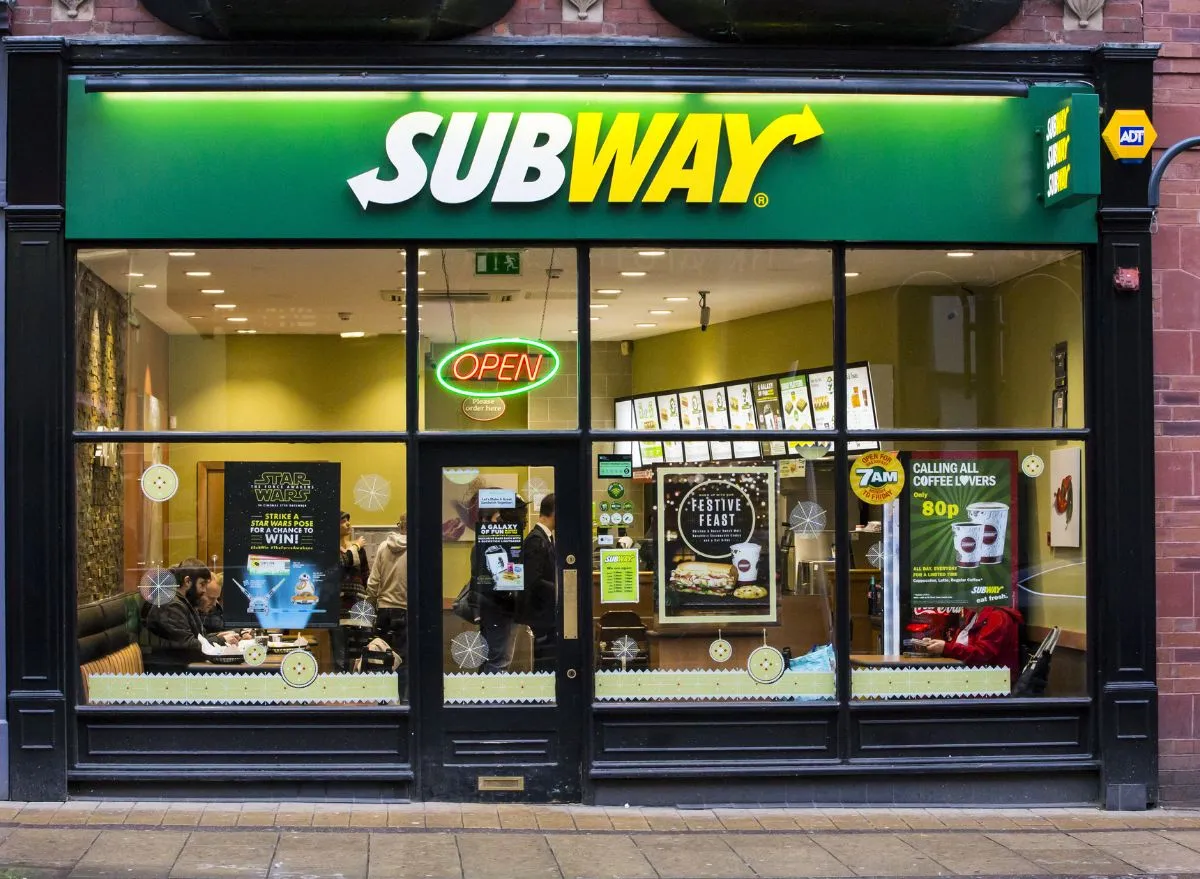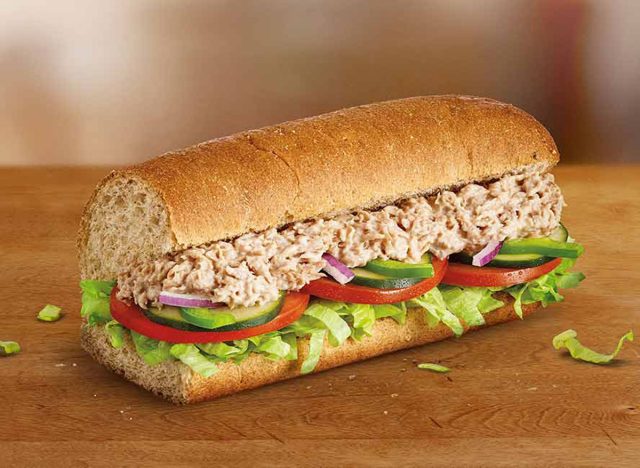The Woman Behind Subway’s “Fake” Tuna Lawsuit Is Dropping the Case

Subway’s yearslong legal drama surrounding its highly-scrutinized tuna could finally be coming to an end, at least for now. The California woman who sued the sandwich chain—alleging that its tuna products aren’t actually made with the fish—reportedly wants to drop the case so she can focus on her health and family as she prepares to have a child.
Nilima Amin, the plaintiff, said that her morning sickness and “debilitating” conditions amid her pregnancy have prevented her from carrying out her responsibilities in the lawsuit, Reuters reported. She wants her case dismissed without prejudice, which means that she could potentially sue again in the future.
Amin initially brought the lawsuit against Subway in January 2021, saying that independent lab tests of the chain’s fish and mayo concoction didn’t actually find any tuna. Her lawyers didn’t immediately reveal what the tests did find in Subway’s tuna, but later amended the lawsuit to highlight other lab findings that purportedly detected chicken, pork, and cattle protein in the product.

Subway has pushed back on these claims from the start, maintaining that its tuna is “100% real” and slamming the case as “meritless.” The company even launched a website in 2021 to “set forth the facts and help clarify any misunderstandings” about its tuna amid the controversy.
Despite these efforts to defend the reputation of its tuna, Subway has said that the lawsuit and widespread news coverage of the case negatively impacted its sales for the product. The company failed in an attempt last year to have the lawsuit dismissed after a California judge ruled that Amin could move forward with the case.
Now that Amin wants to pull back from the lawsuit, Subway isn’t prepared to let the case fade away without seeking repercussions. In a May 4 filing, Subway alleged that Amin and her lawyers decided to drop the lawsuit after realizing the company wouldn’t “simply pay the windfall settlement that they hoped to get by constructing a high-profile shakedown,” according to Reuters.
Subway wants Amin’s lawyers to foot the bill for at least $618,000 of its legal bills relating to the lawsuit. The company also wants to have her proposed class action lawsuit completely dismissed, Reuters reported.
Amin’s lawsuit is one of two explosive, high-profile cases that Subway has faced in recent years. In 2020, Ireland’s Supreme Court ruled that Subway’s sandwich loaves didn’t meet the legal definition of bread due to their high sugar content.
As the chain has faced these legal woes, it has also struggled with restaurant closures. Subway shuttered 571 restaurants in the United States in 2022, reportedly bringing the chain to its lowest restaurant count since 2005. These 2022 closures followed roughly 1,000 additional closures in 2021 as Subway struggled to recover sales after the COVID-19 pandemic. On a more positive note, the company plans to accelerate growth this year with an anticipated 35% increase in new restaurant openings in North America compared to 2022.









